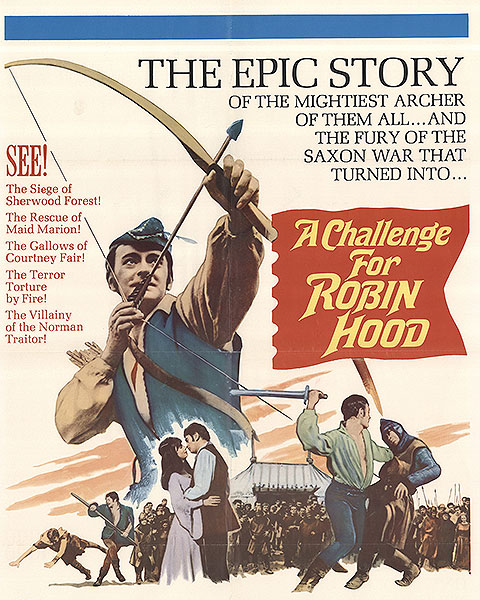It is June, 1926.
“The evening was balmy and the moon was perfect. On the knoll behind Recitation Hall was a square grassy plot, bordered on three sides by bleachers and on the fourth by a stage of unusual appearance. It represented the garden of Lady Marion’s castle, and was filled with trees and foliage which did not have to be painted and imported; they might have grown there for the very use which was being made of them. The audience assembled; everywhere could be heard murmurs of expectancy. The spotlight was focused on the garden and the play began. From the first entrance of the gay and carefree Robin Hood to the close of the drama, the interest never lagged, and the okay went on to a triumphant close.”
 Robin Hood was the fourth of the “Campus Plays” begun in the 1920s to coincide with commencement week. It followed productions of Ingomar (1923), The Merchant of Venice (1924), and Hamlet (1925). Organized by Paul R. Brees, longtime professor of public speaking, these plays quickly became a campus tradition. The 1927 Wittenberger claimed that “The annual Campus Play shares honors with the Alma Mater Fete in being the most picturesque and attractive event of the school year.”
Robin Hood was the fourth of the “Campus Plays” begun in the 1920s to coincide with commencement week. It followed productions of Ingomar (1923), The Merchant of Venice (1924), and Hamlet (1925). Organized by Paul R. Brees, longtime professor of public speaking, these plays quickly became a campus tradition. The 1927 Wittenberger claimed that “The annual Campus Play shares honors with the Alma Mater Fete in being the most picturesque and attractive event of the school year.”
Cast members were chosen from Theta Alpha Phi, the drama fraternity, and they were an impressive lot. Here are a few examples.
- Arvine Ulrich, an “incomparable” Robin Hood, went on to receive an Alumni Citation in 1969.
- Wilma Sudhoff – who “gracefully” portrayed Maid Marian, wrote several articles for her hometown newspaper in Richmond, Indiana, in the 1920s, and published Planning for Nursery Children in 1943.
- Meryl Baumer, who played “the redoubtable” Sheriff of Nottingham, became an educator and an attorney.
- And Lester Crowl, who played Little John “to perfection,” received the Class of 1914 Award in 1958.
Some sources: The Wittenberger, 1927 and the Richmond (Ind.) Palladium-Item
About The Project
With Wittenberg now celebrating its 175th year, and the University unable to hold regular in-person classes as a result of the COVID-19 pandemic, Professor of History Thomas T. Taylor has started circulating several pieces on Wittenberg's history. Some originated in earlier series, either This Month in Wittenberg History or Happy Birthday Wittenberg. Others have their origin in the Wittenberg History Project or in some other, miscellaneous project. Sincerest thanks to Professor Taylor for connecting alumni, faculty, staff, and students through a historic lens.

